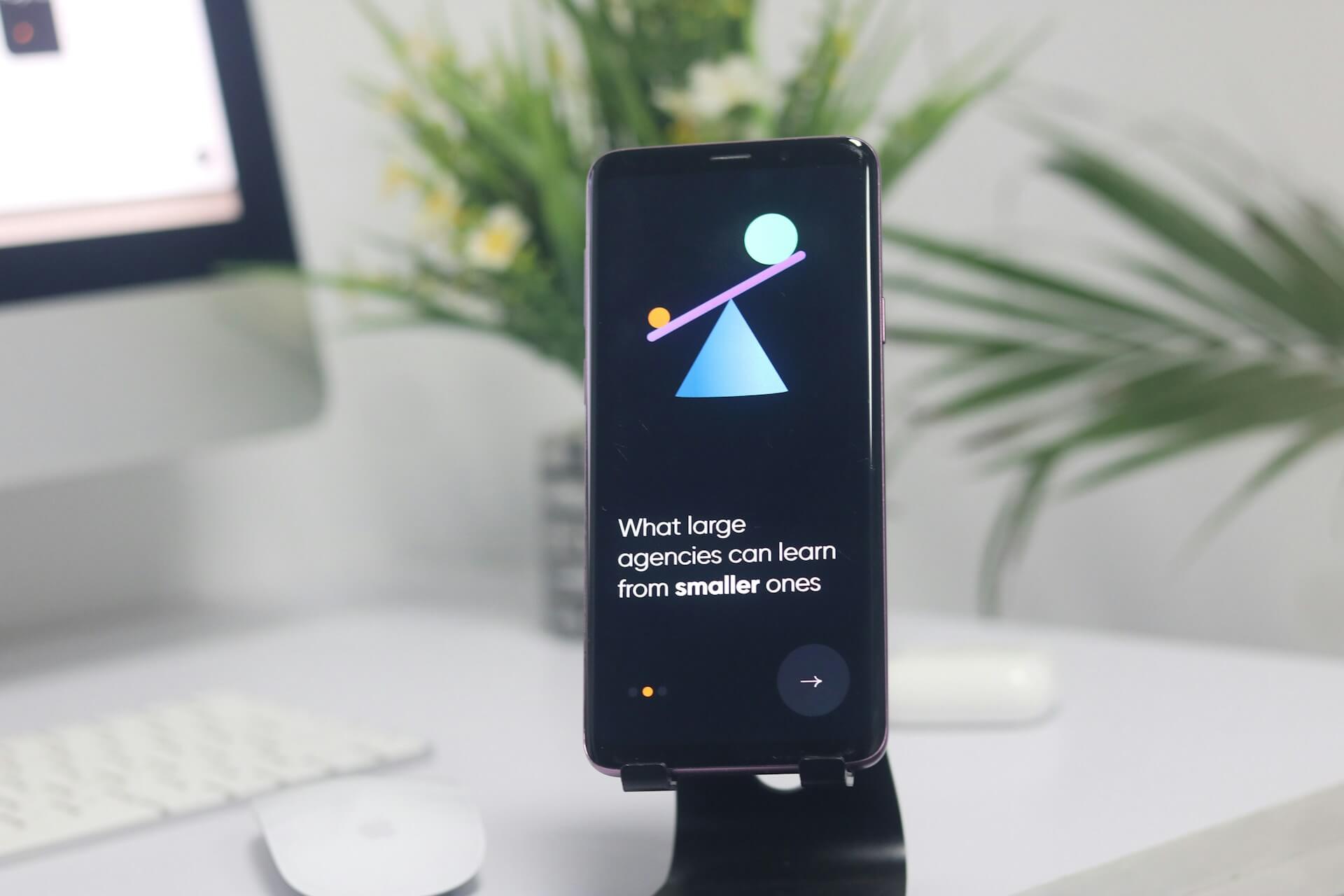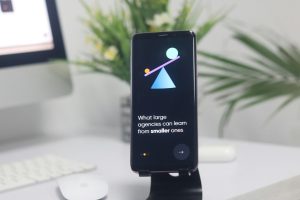
Navigating the world of online education can feel like a juggling act. You’re responsible for keeping track of assignment deadlines, attending virtual lectures, participating in discussion boards, and balancing personal obligations—all without the structure of a physical classroom. Fortunately, Android smartphones and tablets offer countless apps designed to help students stay on track. From scheduling tools that organize your daily tasks to productivity apps that keep distractions at bay, these digital resources can serve as an invaluable lifeline when it comes to meeting deadlines and studying efficiently.

Photo by Muhammad Salim on Unsplash
Online students often need more specialized resources than their on-campus counterparts. A range of apps can help you record and organize digital notes, communicate with classmates, and save reference materials for later review. However, one of the most significant challenges is finding the time and focus on starting, continuing, and completing substantial writing projects. For instance, if you struggle with coursework writing, the proper time management and note-taking tools can help you break large tasks into smaller segments, making the entire process less overwhelming.
Scheduling and Time Management
Google Calendar is a classic, beloved for its clean interface and integration with Gmail, Google Classroom, and other services. You can create color-coded calendars for different courses and set custom reminders. Another popular choice is My Study Life, specifically built for students, which lets you track classes, assignments, and exams in one place. If you prefer a more task-oriented approach, Todoist offers a detailed to-do list system where you can label tasks by project or subject and then set daily or weekly goals. Some students thrive on the game-like motivation these apps provide, viewing each completed item as a small victory. With a strong scheduling strategy, you can reduce stress and give yourself the space needed to dive deeper into course material rather than constantly worrying about what’s due next.
Note-Taking and Organization
The note-taking process is pivotal for efficient studying, especially when lectures, reading materials, and exams occur online. Apps like Evernote and Microsoft OneNote go beyond simple text entry, allowing you to include images, voice recordings, and attachments within your notes. By capturing lectures in multiple formats, you can accommodate different learning styles—typing key points, snapping photos of charts, or even recording brief audio reminders to revisit later.
Another increasingly popular platform is Notion, which combines note-taking, project management, and databases into one interface. You can create shared pages with classmates for group projects, track assignment statuses, and link external documents for quick reference.
Focus and Distraction-Blocking
Maintaining focus is often the hardest part of online learning, given the abundance of digital distractions. Ironically, your smartphone can be both the culprit and the solution. Apps like Forest turn the concept of focus into a game: you plant a virtual tree that grows while you stay off your phone. The moment you yield to temptation and open a blocked app, your tree withers. This visual metaphor helps you resist checking social media or browsing the web.
Additionally, many Android devices now include Digital Wellbeing or similar settings that track app usage and set daily limits. By limiting your exposure to common distractions, you give yourself a better chance to remain in the zone during study sessions. This heightened awareness of how you spend your time can be transformative, helping you prioritize coursework and other academic responsibilities.
Collaboration and Communication Tools
Even though online students often work independently, collaboration with classmates is frequently essential. Group assignments, peer reviews, and discussion forums can significantly enhance your understanding of course material. With the right Android apps, communication can be seamless and efficient. Slack, for example, is a popular choice in both business and education settings, allowing you to create topic-specific channels and share files in real time. If your institution uses Microsoft 365, then Microsoft Teams might be your go-to for chat, video calls, and collaborative document editing.
Research and Reading Apps
Research is a cornerstone of any academic program, whether you’re pursuing an undergraduate degree or advanced graduate-level studies. Traditional methods of sifting through physical books have evolved into a digital search for credible sources. While Google Scholar isn’t a standalone Android app, accessing it through your browser can quickly reveal scholarly articles, theses, and textbooks relevant to your field.
For storing online articles you come across, Pocket offers an offline reading feature so you can catch up on important resources even without internet access. If your courses rely heavily on eBooks or PDF materials, Kindle and Adobe Acrobat Reader provide user-friendly interfaces for highlighting text, making annotations, and bookmarking key pages. Meanwhile, Mendeley helps you manage your references by storing PDFs in an organized library and generating citations in multiple formats. These tools streamline the research process by helping you gather and sort through vast amounts of information, enabling you to focus on critical analysis rather than administrative tasks.
Writing, Study Aids, and Conclusion
For many online courses, the bulk of your grade may hinge on written assignments, from discussion posts to research papers. Tools like Google Docs and Microsoft Word for Android let you draft, edit, and store documents in the cloud, ensuring you can work on your projects anytime inspiration strikes. Pair these with the Grammarly Keyboard, which checks for grammar, punctuation, and style errors in real time, and you’ll produce cleaner, more polished texts before final submission.
Beyond writing, study aids can reinforce learning and improve retention. Quizlet, for instance, turns your notes into digital flashcards and quizzes, making review sessions more engaging. Khan Academy provides free videos and exercises across a range of subjects, and it’s great for supplementing your primary coursework. Using these resources in tandem can transform any moment—like waiting in a queue or riding the bus—into an opportunity to review material or polish your writing.
Final Thoughts
Ultimately, the best Android apps for online students are the ones that align with your personal study habits and course demands. Whether you need help scheduling, note-taking, staying focused, or collaborating with peers, there’s an app perfectly suited to your academic journey. By selecting and refining a core toolkit of scheduling, productivity, and study tools, you lay a solid foundation for success in online education. Embrace these digital solutions, and you’ll find yourself more organized, engaged, and prepared to tackle the challenges of virtual learning with confidence.
